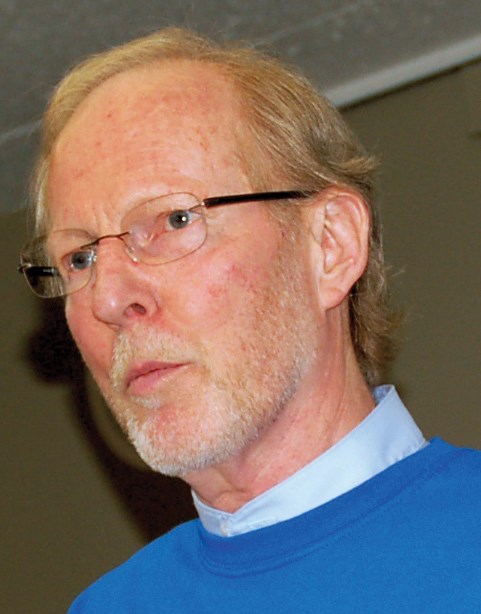Sechelt council won’t be releasing the results of its online citizen satisfaction survey because it was “hacked,” according to the mayor.
“Let me be very clear about this – this survey was an attempt to engage the community. It was hacked,” Sechelt Mayor Bruce Milne told council at its March 15 regular council meeting.
“It was hacked by a group of people on social media who encouraged negative responses to come in.”
The survey was available online from Nov. 22 to Dec. 2 via the district’s website and it asked the same 26 questions that had been previously asked through a random telephone survey between Nov. 9 and Nov. 13.
The results of the telephone survey ended up being quite different from the online survey, council heard in a staff report from communications coordinator Connie Jordison.
“In hindsight it was an error on the part of staff to put forward an online version of the survey that we couldn’t statistically verify when we already had statistically verifiable results from the telephone survey,” Jordison said, advising council not to release the online survey results.
“Putting forward two different survey results that have quite a variation between the two results, it certainly isn’t supportable. It calls into question the results of the online survey and we’d be putting out information that we just can’t verify.”
Jordison said although Sechelt tracked the computer IP addresses of respondents to the online survey, there’s no way to prove the respondents at individual computers were from the District of Sechelt.
“I could go to your house and take the survey on your IP address and I don’t live in Sechelt, so it’s very, very difficult,” Jordison said.
“I probably didn’t realize the significance of how difficult it would be to track this when we went forward with adding this on, and that’s a lesson learned for communications.”
Council was asked to decide whether or not to release the online survey results to the public and only Coun. Darnelda Siegers was in favour, at first.
“I think the information, whether it’s residents of Sechelt or elsewhere, it’s a viewpoint, so I would be in favour of having the information available but with the disclaimers, because it is somebody who’s taken the time to give us that feedback,” Siegers said.
In response Milne said the online feedback “doesn’t add anything to the discussion. It’s not just a viewpoint. It is in fact simply a hacked survey. So I don’t know why the District of Sechelt would introduce that into the mix,” Milne said.
He added that he was sure the online results were skewed because he had a friend test the survey. “I asked one person that I know very well to test the validity of this survey and let me know whether it would stand up. That person entered 14 responses, out of 132 that were received. That’s 10 per cent,” Milne said.
“We take that 10 per cent out, which we know was neutral to positive, and the remaining 118 responses are not within five or six percentage points of the statistically valid response.”
Milne referred to the telephone survey as the “statistically valid response,” pointing out nearly 96 per cent of respondents to that survey felt the quality of life in Sechelt was good or satisfactory.
“Almost 45 per cent [of people who took the survey online] said they do not like living in Sechelt, that the quality of life is low,” Milne said, shedding light on one of the online results.
It was one of 13 survey questions that received very different answers than the telephone survey, according to Jordison, who reported there were “significant variations.”
Milne added that he “actually compiled all of the [online] responses and compared them to the valid one” before making his decision that the online survey wasn’t a fair representation of what Sechelt residents think.
Siegers said she didn’t have the same information to refer to as Milne; however, she voted with the rest of council to not release the online results of the survey when the question was called.
Instead council will release a statement as to why the results won’t be made public.



